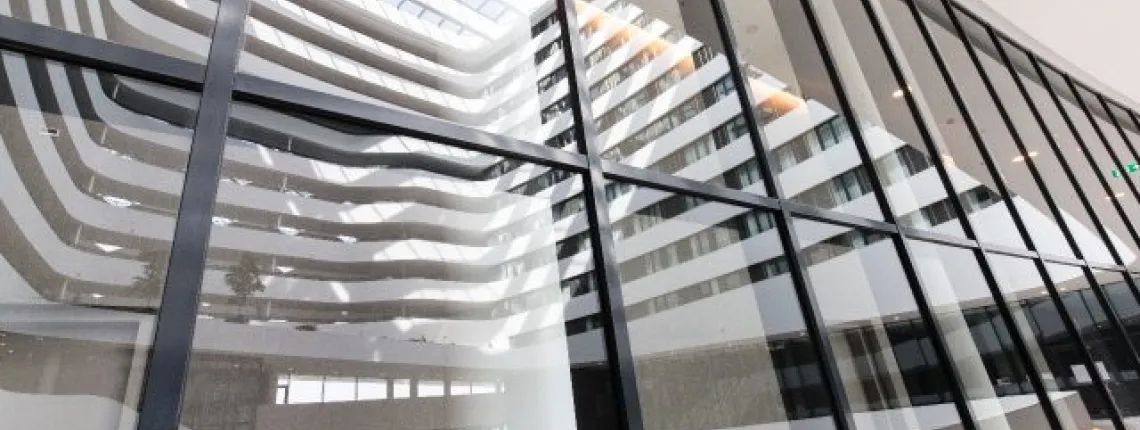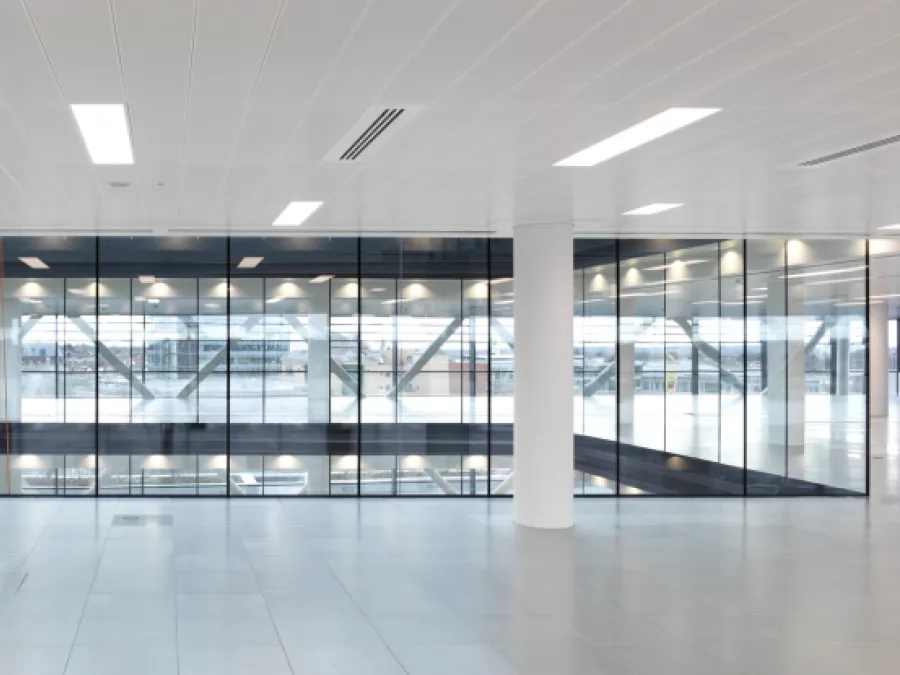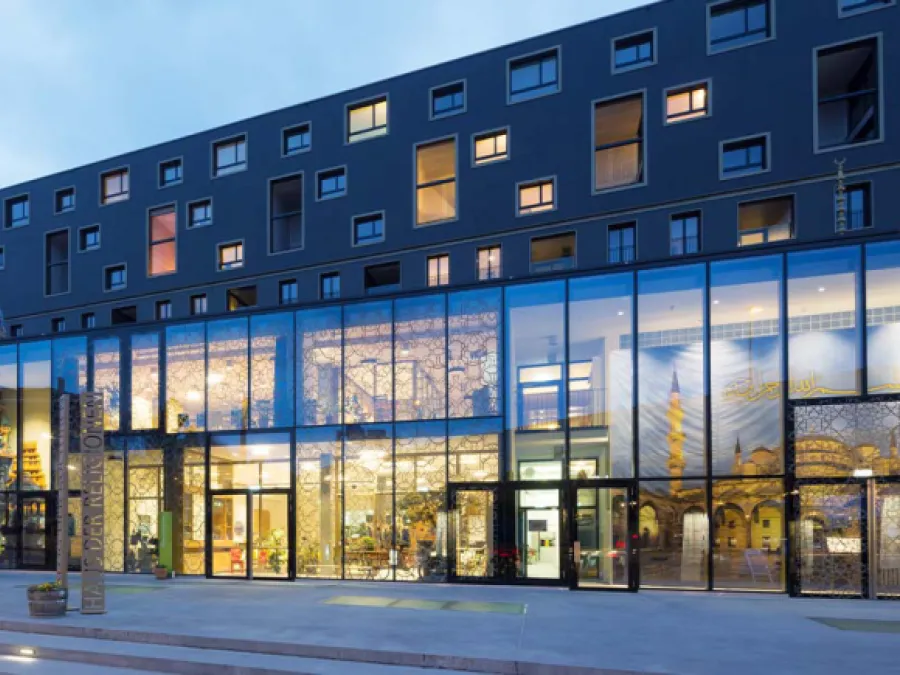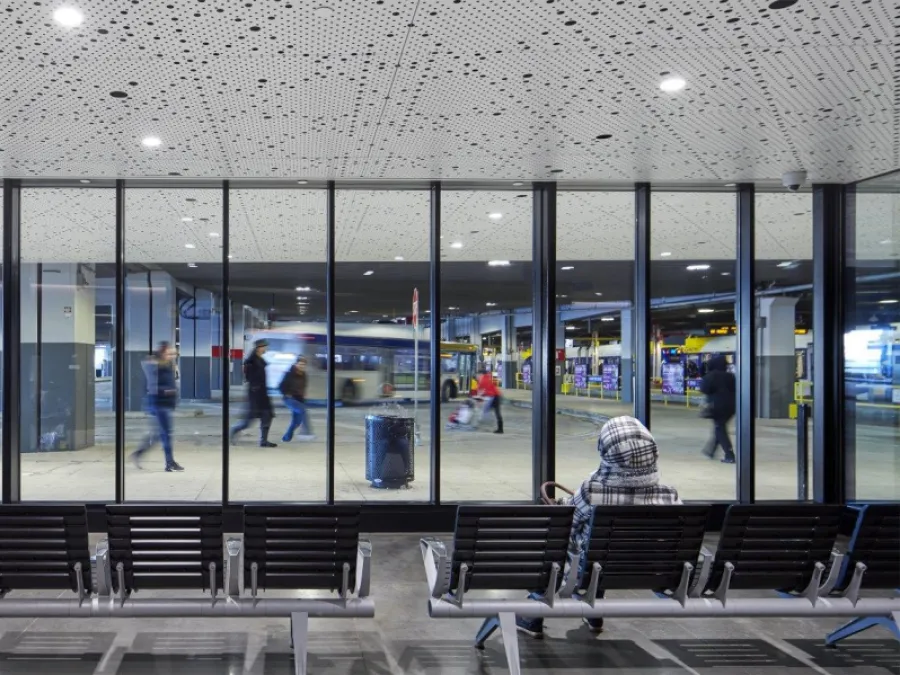BIS Guidelines for Security Glass: Ensuring Compliance and Safety in India

The growing demand for safety in building designs has placed security glass, such as fire-resistant or bullet-resistant glass, at the forefront of modern construction. Whether it's protecting against fire hazards or ballistic threats, security glass plays a pivotal role in safeguarding both property and lives.
In India, ensuring that these materials meet the highest standards of performance is crucial, which is where the Bureau of Indian Standards (BIS) comes in. Through its carefully crafted guidelines, BIS ensures that the security glass used in buildings is not only effective but also compliant with safety regulations.
What is a Security Glass?
Security glass refers to any type of glazing material designed to resist damage or penetration from external forces. It is available in various forms, with the most common being laminated and toughened glass.
Laminated glass consists of multiple layers of glass bonded together with a durable interlayer, offering excellent protection against impact and the potential to hold together even when shattered. Toughened glass, on the other hand, is a heat-treated glass that enhances strength and impact resistance.
These types of security glass find applications across different sectors, including in high-security areas, fire safety installations, and architectural designs where protection against both fire and external forces is paramount.

What is BIS and What Role Does it Play?
The Bureau of Indian Standards (BIS) is the national body responsible for setting and enforcing product standards across India. It plays a crucial role in the formulation and maintenance of construction and safety standards, including those for security glass. BIS ensures that materials and products used in construction meet the requirements for quality, safety, and environmental impact.
The Significance of BIS Certification
In India, ensuring the safety and reliability of construction materials, particularly security glass, is paramount. The Bureau of Indian Standards (BIS) plays a crucial role in setting benchmarks for fire-resistant and bullet-resistant glass, ensuring compliance with national safety regulations. BIS Certification serves as a mark of quality, confirming that security glass products meet stringent performance criteria for fire resistance, impact resistance, and durability.
For manufacturers, obtaining BIS Certification enhances product credibility and market acceptance. It assures architects, builders, and consumers that the glass has undergone rigorous testing in accredited laboratories, making it suitable for high-security applications. Additionally, compliance with BIS standards aligns Indian products with global safety norms, fostering international trade opportunities.
For consumers and industry stakeholders, BIS Certification offers confidence in the reliability of security glass. The ISI mark on certified products indicates adherence to established safety protocols, reducing the risk of substandard or unsafe materials being used in construction. As fire safety regulations continue to evolve, BIS compliance remains essential in promoting safer built environments across India.
The Role of BIS in Fire and Life Safety
The Bureau of Indian Standards (BIS) plays a crucial role in formulating and maintaining the National Building Code of India (NBC) Part 4, which focuses on Fire and Life Safety. This section outlines essential guidelines on fire prevention, fire protection, and life safety measures for buildings across India. BIS develops and updates fire safety standards to ensure compliance with national and international best practices.
NBC Part 4 mandates the use of fire-rated materials, including fire-resistant glass, fire doors, and compartmentation, to control fire spread. NBC also categorises buildings based on occupancy type (residential, commercial, industrial, healthcare, etc.) and prescribes fire protection requirements for each category. BIS ensures that construction materials adhere to the relevant IS standards, providing assurance of safety and quality.
BIS Standards for Security Glass
BIS has developed several standards specific to security glass compliance, addressing various performance aspects such as fire resistance, impact resistance, and bullet resistance. These standards include:
-
IS 2553 (Part 1) 2018: This standard classifies safety glass into toughened and laminated types, providing detailed specifications on their thickness and impact resistance.
-
IS 16945: This standard pertains to the fire resistance test for glass walls, ensuring that glass installations in fire-rated partitions can withstand the heat and prevent the spread of fire.
-
IS 16947: Focused on fire-resistant glass doors, this standard covers glass doors, windows, and other glazed units, outlining how they must perform in a fire situation.
-
IS 15818: This standard defines the quality and performance requirements for bullet-resistant security glass, specifying the level of protection against ballistic threats.
These guidelines ensure that all security glass used in construction is tested for compliance with fire and safety protocols, offering protection against fire hazards and external threats such as break-ins and ballistic attacks.

Compliance Requirements
To comply with BIS standards, manufacturers and builders must follow strict procedures for the testing and certification of security glass. The testing should be conducted in accredited laboratories that specialise in safety and fire-resistance testing. These labs ensure that the glass meets the required fire-resistant glass and bullet-resistant glass criteria outlined by BIS.
Additionally, all security glass products must be designed and manufactured to meet the specific requirements of the National Building Code (NBC) Part 4, which mandates the use of fire-rated materials in certain building applications. Builders must also ensure that their glass products are correctly certified, ensuring compliance with both national and international standards for fire and safety.
Benefits of BIS-Compliant Security Glass
Adhering to BIS guidelines offers several key benefits for both manufacturers and building owners. First and foremost, BIS-compliant security glass enhances the safety and security of buildings, offering reliable protection against fire, bullet impacts, and other potential hazards.
Moreover, using certified glass ensures that the material has undergone rigorous testing, guaranteeing its durability and performance over time. BIS-certified glass also improves consumer confidence, knowing that the materials used in their construction meet stringent safety requirements.
For example, Vetrotech's high-security, fire-resistant glass products meet BIS standards, offering long-lasting protection and peace of mind. Their products are designed to withstand extreme conditions, ensuring the highest level of fire protection solutions and security glass compliance.
Challenges in Implementation
While BIS standards for security glass are essential for ensuring safety, manufacturers and builders may face challenges in meeting the rigorous compliance requirements. Some common obstacles include the high cost of testing and certification, difficulty in sourcing materials that meet the standards, and navigating the complex regulatory landscape.
To overcome these challenges, manufacturers can invest in training and awareness programmes to better understand BIS requirements. Additionally, they can also work closely with accredited testing laboratories to ensure that their products meet the required performance levels. Ensuring seamless security glass compliance through careful planning and collaboration can help builders and manufacturers navigate these challenges effectively.
Future Trends in Security Glass Standards
As security concerns continue to evolve, BIS guidelines for security glass will likely see updates to keep pace with new technologies and materials. Innovations in glazing technologies, such as smart glass and fire-resistant coatings, will likely influence future standards, creating opportunities for improved safety features and enhanced building performance.
The growing demand for sustainability may also lead to new BIS guidelines addressing the environmental impact of security glass. As energy-efficient buildings become a priority, BIS may introduce standards that encourage the use of solar control coatings and low-emissivity glass for fire-resistant glass applications.
Ensuring Safety with BIS Compliance in Security Glass
Adhering to BIS guidelines for security glass is crucial to ensuring that installations in India meet the highest standards of safety, performance, and durability. As the demand for fire-resistant glass and bullet-resistant glass grows, it is essential for manufacturers and builders to stay informed about the latest regulations and certifications. By following these standards, they can guarantee building occupants' safety, enhance their construction reliability, and foster consumer trust in their projects.

